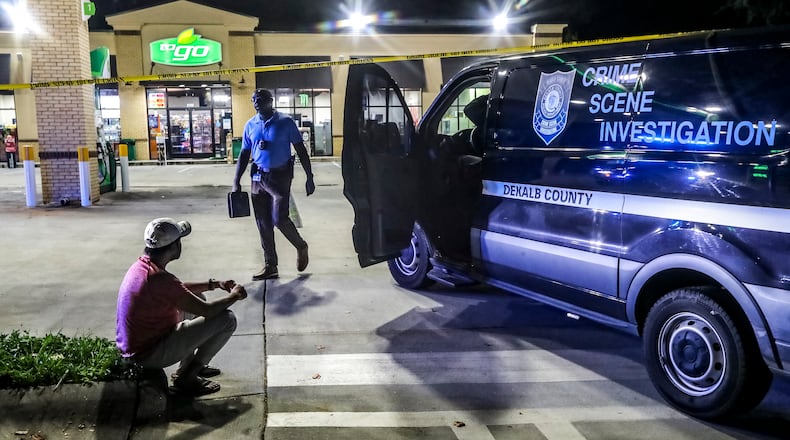Atlanta City Council members passed new video surveillance requirements for gas stations which, residents say, are a hotbed for criminal activity.
Before a three week hiatus, Council member Andrea Boone introduced a resolution that mandates that gas stations and convenience stores install high-definition cameras at gas pumps that run 24 hours a day, 7 days a week.
The new surveillance requirements will impact more than 250 businesses within the city limits.
The proposal aims at deterring crime at the local businesses. Some residents — particularly on the west side of the city — say they are scared to utilize their community gas stations as drugs, prostitution, carjackings and deadly gun violence run rampant around the pumps.
“This prioritizes safety for the elderly and Atlanta residents who are targeted, while attempting to pump gas and go to those convenience stores,” Boone said following the vote.
“We just want to make sure everybody is safe,” she said.
The legislation passed on Monday unanimously, but after slight changes. Council member Dustin Hillis offered an amendment to remove the requirement for a camera at every pump while, he said, a single camera can monitor more than one pump.
Another change requires the Finance and Executive Committee to review and OK the implementation process within the next 120 days.
Similar legislation failed to gain traction over the past few years. But council members saw an opportunity after DeKalb County recently began enforcing similar, but much more expansive, requirements in an effort to deter crime there.
In Atlanta, the Martin Luther King Jr. corridor on the west side of Atlanta is a particular hotspot for troubled gas stations.
An analysis by The Atlanta Journal-Constitution of police data showed that officers responded to nearly 5,500 calls for service across 14 gas stations on the busy roadway since January 2022. Those calls resulted in just 376 arrests.
But not everyone agrees that a camera mandate is the right solution. Some critics say putting the onus on business owners misses the mark on who’s responsible for widespread crime.
Trade associations say the ordinance criminalizes store owners and could spark legal challenges.
Boone said she is aware of potential legal concerns, which is why council members are taking additional time to be “deliberate” in the implementation of the legislation.
About the Author
The Latest
Featured

